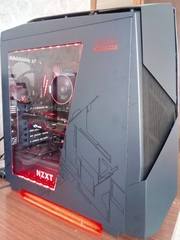HPE warns of firmware bug that bricks SSDs after 40,000 hours
-
Topics
-
poly ·
Posted in General Discussion0 -
0
-
skayqz ·
Posted in Graphics Cards1 -
3
-
3
-
1
-
bat_verified ·
Posted in New Builds and Planning1 -
8
-
3
-
3
-
-
play_circle_filled

Latest From Linus Tech Tips:
He Spent 3 YEARS Begging me for a PC. Good Luck Finding it!


.png.255947720031a641abdac78e663b681c.png)













Create an account or sign in to comment
You need to be a member in order to leave a comment
Create an account
Sign up for a new account in our community. It's easy!
Register a new accountSign in
Already have an account? Sign in here.
Sign In Now